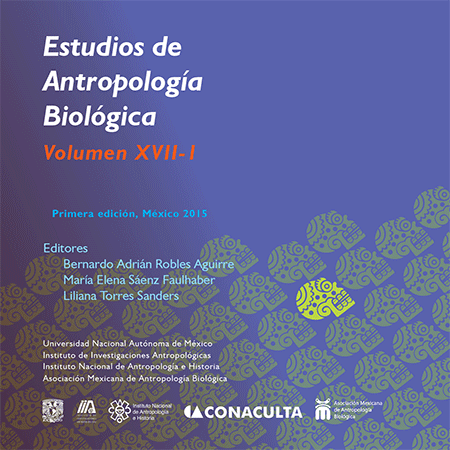First approach to a inmuno-genetic map of Mexican population
DOI:
https://doi.org/10.22201/iia.14055066p.2015.56838Keywords:
Immunogenetics, HLA, admixture, haplotypes, Mexican populations’ geneticsAbstract
Given the biological, demographic and epidemiological relevance of the Human Leukocyte Antigens (hla), we compiled information on haplotypic frequencies of populations from Mexico that differ from each other in their history, ecology and demography, to show a panorama from immunogenetics that allows the explaination for not only the prevalence of infectious and autoimmune diseases –and their relationship with epidemics–, but also to explore admixture processes and the contribution of their ancestral components to the observed genetic pool in the contemporary populations of Mexico. The biological variability at the hla system is described in distinct populations of the country and the information obtained was correlated with demographic, social and biological history of the studied populations. The differential presence of haplotypes presents a geographical distribution pattern and correlates mainly with colonial history, with prevalence of European haplotypes in the northeast and western regions, Native American associations in central and southeastern zones, and an important African genetic contribution in the coastal parts of Veracruz. An important proportion of previously unknown haplotypes was found. The presence of haplotypes with components of distinct ancestries may imply biological admixture within the hla system.
Downloads
Downloads
Published
How to Cite
Issue
Section
License

http://creativecommons.org/licenses/by-nc-nd/4.0/


